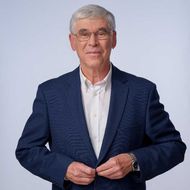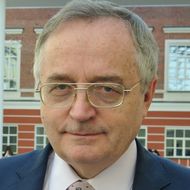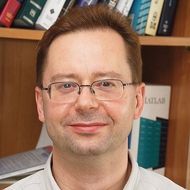Interview with the professor Jonathan Kydd, the Dean of the University of London International Programmes >>
.jpg) Interview with the professor Jonathan Kydd, the Dean of the University of London International Programmes.
Interview with the professor Jonathan Kydd, the Dean of the University of London International Programmes.
What is the main purpose of your visit to the ICEF this time?
As the Dean of the University of London International Programmes I am representing here the issues and concerns of my home university and have to understand the context in which the students are taught at ICEF as well as gain some satisfaction from listening to the discussions that take place and make sure that this is a high quality level environment. I also would like to understand business projects that ICEF expands in Russia. So these are my specific issues.
Besides that, I use the opportunity to be at the ICEF annual graduation ceremony.
Have you had a chance to meet the new group of ICEF graduates?
I have not met this group yet, but I have been doing this job for four years now so had the opportunity to talk to the graduates in the context of the party that takes place after the graduation. In previous years I also attended and observed some class teaching, talked to lecturers and took part in some committees reviewing the progress that ICEF made.
Have you ever participated in a student testing process or exams?
The exams is the assessment process that is done completely by the University of London, and as the Dean, I’m ultimately responsible for that.
There is no question of any variation of standards of our system. In fact what happens at the moment is that the papers written here in Moscow by the students are couriered to London, where they are read by two examiners (in this case they are examiners of London School of Economics) and moderated by the third external examiner. So the results are done on that basis. The exam system that we run here in Russia and in the other parts of the world is the same, and it allows us to show the uniformity of high standards of the University of London Degree.
Last October ICEF went through a review visit by the colleagues from the International Programmes Office of London University. What were the results of this inspection?
Around the world there are quite a large number of independent teaching institutions that support students who are studying for the degrees of University of London. There is a select group which is in the category of recognition that we call recognized centers. And then there are two sub categories within this category of recognition – affiliate which is a higher one and registered which is a standard one. Now ICEF is affiliate as one of the small group of very select institutions which, we believe, provide very high educational standards.
The purpose of the review was to check whether we were correct in the allocation of ICEF to that higher standard affiliate status. And the outcome of the review was that the decision was correct. So I can say in general terms that it is a very strong teaching institution indeed and it’s attested to by the quality of the staff and the research culture here. And I think that’s the fact that the students recruited to come here are very strong students by international standards. If you look at the distribution of final degree awards, they are very good indeed. And with the fifth student getting the first class honor degree which, when you consider that they are studying at a distance from London University, is indicative of the very high standards. Also, large number is getting the second class honor degrees. So the academic results here are good and consistent.
Do you use your cooperation experience with ICEF in other countries?
Yes, we do. When we’re having discussions with new institutions and they ask us about the models or successful histories of educational cooperation, then ICEF would be on the short list of half a dozen institutions out of 70 which are in the category of the recognized. Of course, there are some specifics of the Russian situation which can’t easily be copied. One of particularities of Russia, which I think make a great contribution to the success here, is that the Russian school system make a strong emphasis on mathematics. So compared to many others countries of the world Russians’ capacities in mathematics are very high and that puts Russian students in a favorable position when they study subjects that are mathematical in nature, such as economics. So some of the problems that are faced by others you don’t have because of the strength of your secondary school system.
Can you please share your vision of perspectives and further plans of this collaboration?
One of the things that I would mention is a Master’s Degree programme strongly supported by the London School of Economics team. That is important. I know that LSE colleagues have been developing research culture here as well.
I was delighted to hear that enrollment this year is way ahead of target and the discussions we are having now are about how to deal with the problems of this success. The new challenges concern classrooms space, hiring additional teachers into the staff. However, these challenges of the success are the problems that you would like to have, and I’m sure that the team here will deal with them very effectively. The academic management team is highly competent here; they recognize the problems and respond to them.
In general, our plan is to be supportive of ICEF plans to the extent that ICEF wants to continue to develop within the framework of teaching for the University of London degrees. We are absolutely delighted to work with them. We want to see ICEF students being successful, having good carriers and interacting with us in the UK which is very good for the relations between our countries.
The great thing about the University of London International Programmes is that we control just two things: assessment and curriculum. In all other aspects of relations we have with the institutions we don’t seek any control. This is very different from other models of academic collaboration. We find that it’s much easier to be partners if we are not imposing requirements on you apart from those ultimately related to the curriculum and the exams. Everything else we’re doing is in the sense of provision of friendly advice.
Valentina Gruzintseva, News Section of HSE web portal




.jpg)